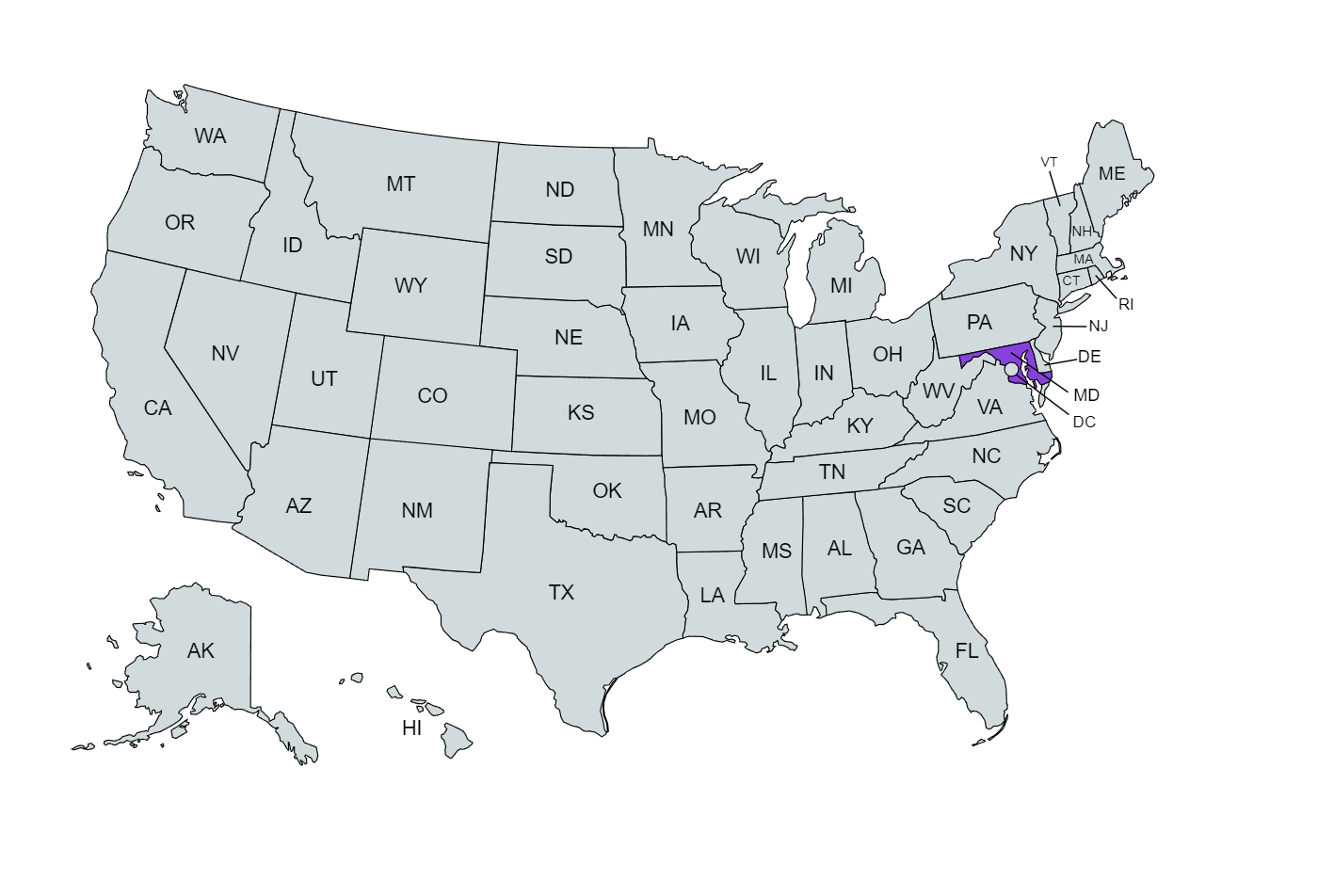Maryland Paycheck Calculator: Calculate Your Net Pay
If you’re wondering, “How do I figure out how much money I take home in Maryland?” we’ve got you covered.
Use our simple paycheck calculator to estimate your net or “take home” pay after taxes, as an hourly or salaried employee in Maryland.
Paycheck Calculator
Meanwhile, get ahead with our free resources:
How Does the Paycheck Calculator Work?
Input your salary information, such as wage and pay frequency, and our tool will handle the tax calculations for you. Once you’ve filled in all the information, click the “Calculate Tax” button, and the calculator will provide an estimate of your net or “take home” pay for the specified pay period.
Overview of Maryland Taxes
Maryland employs a graduated individual income tax system, featuring rates that span from a modest 2% to 5.75%. Various jurisdictions across the state may also impose local income taxes, adding another layer of complexity.
For nonresidents, there is a special tax rate of 1.25% in addition to the state income tax rate, creating different tax considerations for those working in Maryland but residing elsewhere.
When it comes to sales taxes, Maryland has a straightforward state sales tax of 6%. The advantage here is that there are no additional local sales taxes to worry about, making it simpler for consumers to understand their tax obligations.
However, it's crucial to be aware of the 6% use tax applied to tax-free purchases made out of state. This use tax must be reported and paid through the state's use tax return.

In terms of property taxes, all real property in Maryland is subject to taxation. The state operates on a three-year cycle for property reassessments, with approximately 1/3 of all properties reviewed annually, including a physical inspection.
Property tax rates are determined by individual units of government, including the state, counties and cities. Maryland has no state-imposed restrictions on property taxes, meaning that local jurisdictions can adjust tax rates as needed to fund essential services.
The Old Line State imposes both estate and inheritance taxes. The estate tax exemption stands at $5 million, exempting estates valued under this threshold. Meanwhile, the inheritance tax applies to specific heirs when property values exceed $1,000, with exemptions granted to descendants.
Businesses operating in Maryland enjoy a relatively favorable tax environment, paying lower-than-average state and local taxes, accounting for only 30.7% of total taxes collected statewide. This contrasts with the nationwide average of 44.3%.
Median Household Income in Maryland
Maryland's economy is a dynamic fusion of various sectors, each playing a unique role in shaping the state's prosperity. From agriculture to high-tech innovation hubs, the state offers a rich tapestry of economic activities.
In 2021, Maryland's Gross Domestic Product (GDP) exceeded $438.2 billion, with government, insurance, finance, real estate and professional and business services as dominant sectors.
The job market in Maryland remains robust, boasting an unemployment rate below the national average. As of July 2023, the state's unemployment rate is a mere 1.8%, reflecting its economic strength and a resilient workforce.
In Maryland, salaries vary widely based on position. However, the median household income can give you a glimpse at the average salary a household is earning in this state.
Tips for Maximizing Your Paycheck
Here are some tips to help you maximize your paycheck:
- Create a budget that outlines your income, expenses and financial goals
- Set up automatic transfers to your savings account
- Prioritize paying off high-interest debts like credit cards
- If your employer offers a retirement plan like a 401(k), take advantage of it
- Consider investing in low-cost, diversified index funds or exchange-traded funds (ETFs)
- Ensure your tax withholdings are accurate
- Take advantage of any employer benefits, such as health insurance, flexible spending accounts or commuter benefits
